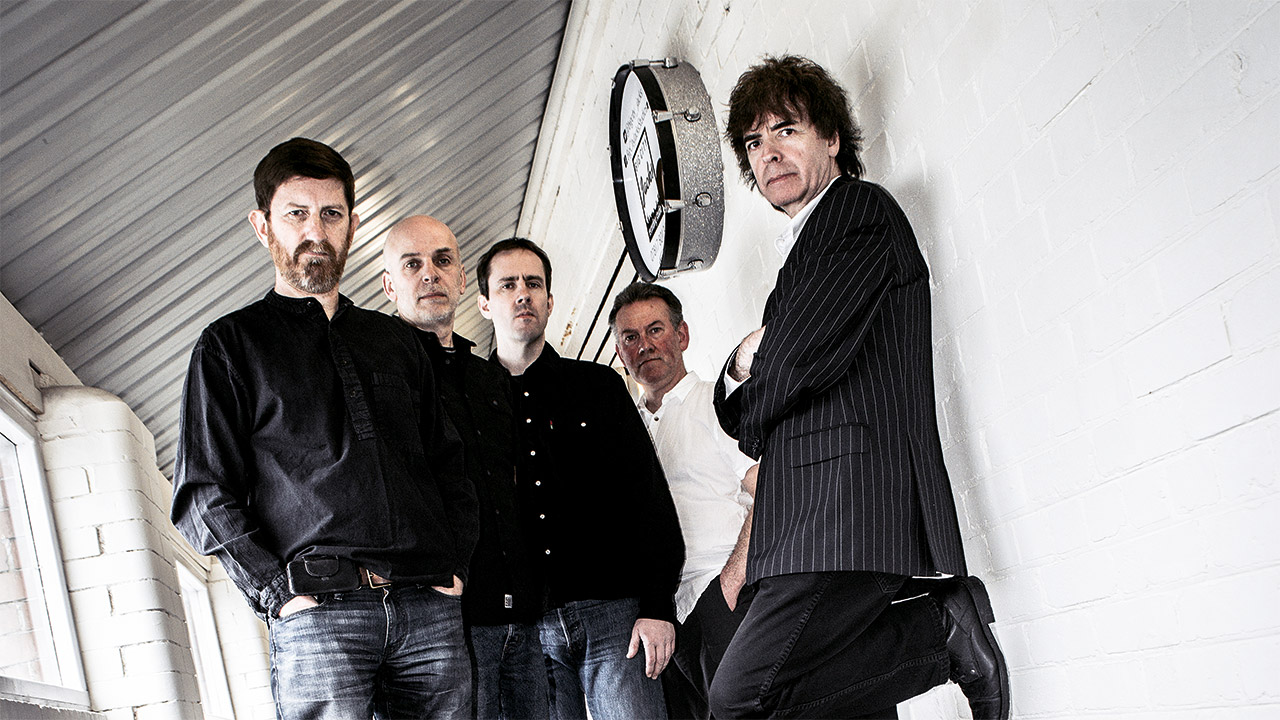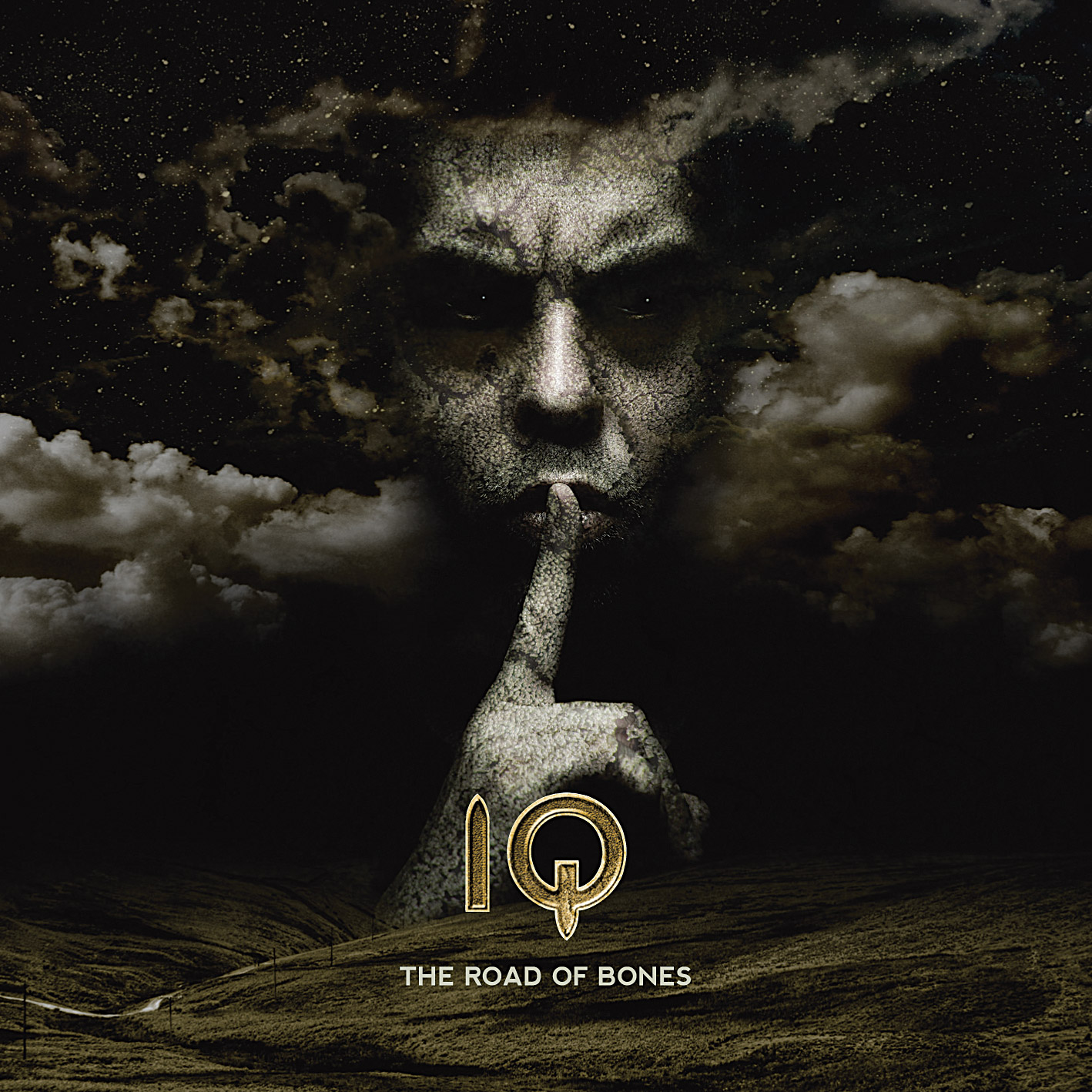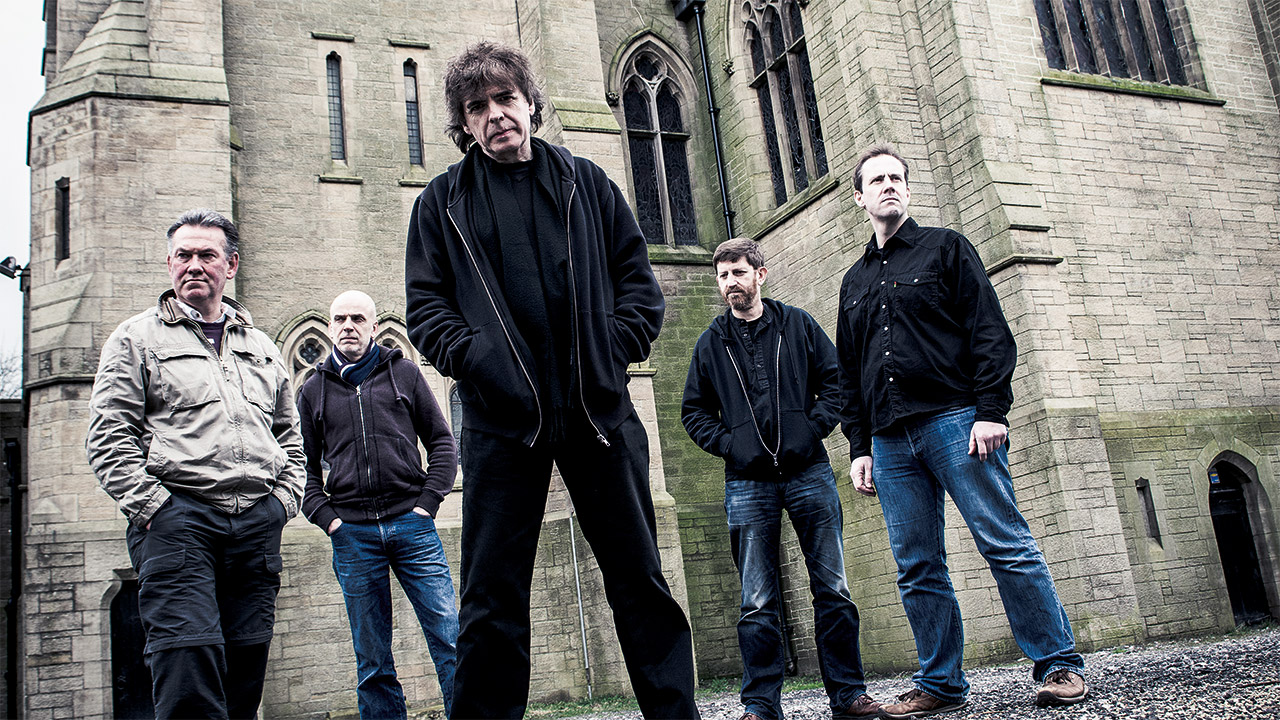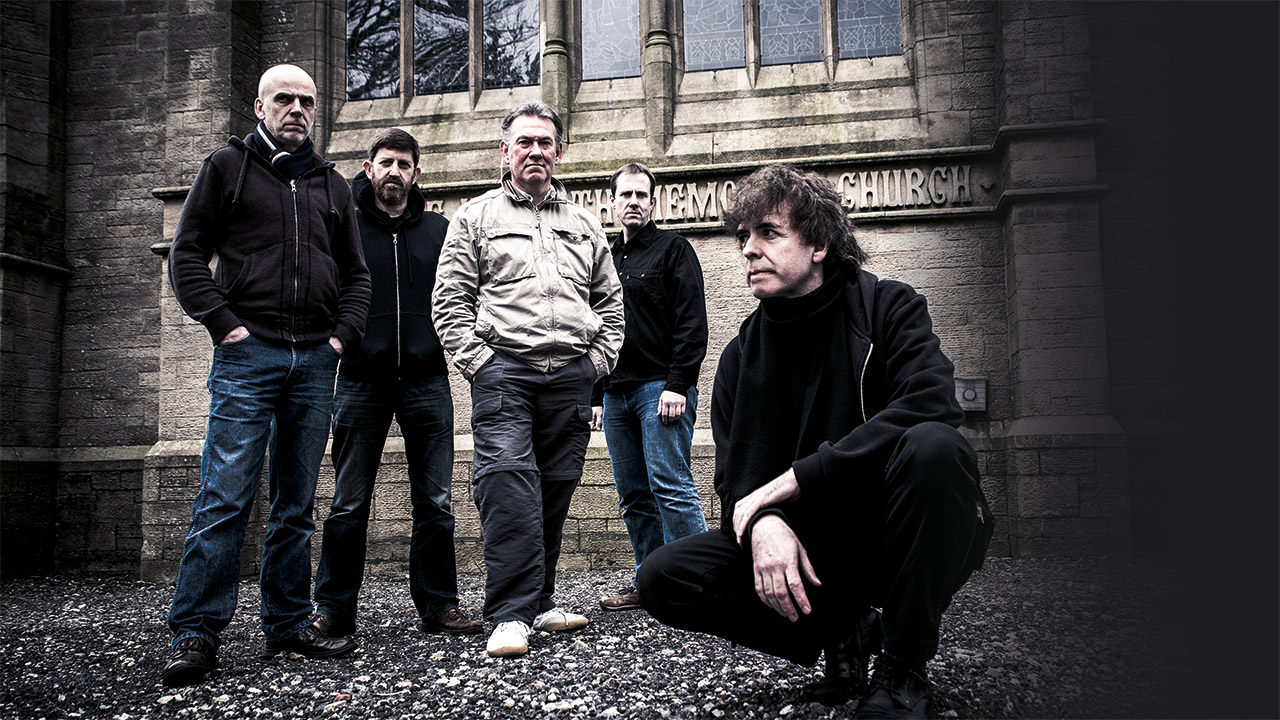“More cheery stuff from IQ!": The story of The Road Of Bones
The inside story of UK proggers IQ's eleventh studio album, 2014's The Road Of Bones

Select the newsletters you’d like to receive. Then, add your email to sign up.
You are now subscribed
Your newsletter sign-up was successful
Want to add more newsletters?

Every Friday
Louder
Louder’s weekly newsletter is jam-packed with the team’s personal highlights from the last seven days, including features, breaking news, reviews and tons of juicy exclusives from the world of alternative music.

Every Friday
Classic Rock
The Classic Rock newsletter is an essential read for the discerning rock fan. Every week we bring you the news, reviews and the very best features and interviews from our extensive archive. Written by rock fans for rock fans.

Every Friday
Metal Hammer
For the last four decades Metal Hammer has been the world’s greatest metal magazine. Created by metalheads for metalheads, ‘Hammer takes you behind the scenes, closer to the action, and nearer to the bands that you love the most.

Every Friday
Prog
The Prog newsletter brings you the very best of Prog Magazine and our website, every Friday. We'll deliver you the very latest news from the Prog universe, informative features and archive material from Prog’s impressive vault.
“If we’d ever split up, it would probably have been due to ‘geographical differences’.”
IQ frontman Peter Nicholls is only half joking when he recounts the logistical headaches involved in keeping his band’s show on the road, and indeed in the studio, as they prepare to release their 10th album. He’s talking to us from his home near Manchester, a few hours after we’ve met his fellow founder member of the band, guitarist and producer Mike Holmes, 200‑odd miles away in London.
If we’d wanted to meet the other three members, we’d have had to put a pretty hefty dent in the Prog travel budget, going all the way up to Inverness to see drummer Paul Cook, taking a diversion via Newcastle to hook up with bassist Tim Esau, and stopping off in Luton to meet new keyboard player Neil Durant. And, naturally, the studio where they did most of the album’s recording is back in the band’s original home base of Southampton. Then again, who ever said progressive rock was meant to be easy?

The struggles of the band’s salad days in the early 1980s, when four of them shared a one-bedroom flat in Kensal Green, were perhaps par for the course, and helped to fire up classic early releases Tales From The Lush Attic and The Wake. But despite having long since carved out a respected niche in the prog scene, simply functioning as a gigging, recording unit as 50-something musicians in 2014 remains a continual logistical and financial challenge. This is a band that’ve been paying their dues for 33 years.
“We were trying to arrange a gig recently and we worked out it was going to cost two grand in travel just to get the band to three weekends of rehearsals,” says Holmes, with a rueful grin.
But where there’s a will, there sure as hell is a way. Despite three more line-up changes since 2009’s Frequency, the band are now back with four of their original five members on board, and what promises to be one of their darkest and most compelling sets of songs to date.
We meet Holmes near his Docklands home, during a day off from putting the finishing touches to mastering The Road Of Bones, a new album that promises to be more ambitious than ever, not just creatively but also commercially.
Sign up below to get the latest from Prog, plus exclusive special offers, direct to your inbox!
Having completed an hour’s worth of music for the finished album, they’ve decided also to offer fans an option of a double-CD extended edition featuring an extra 40 minutes of the wealth of material that didn’t make it onto the finished album (for sequencing reasons, according to Holmes).
It’s the kind of ‘deluxe’ edition that has become pretty commonplace for bands re-releasing albums, but any music biz accountants reading this will surely be choking on their extra-shot lattes right about now. Releasing the damn thing at the same time so record buyers can choose between editions? Passing up the opportunity to fleece loyal fans for the same album twice in the space of a year? What fresh lunacy is this?!
“As a fan I actually quite like those special editions,” says the guitarist, “but there is something in me that thinks it’s a little bit of a rip-off. That may be harsh in some cases, but if you can do something up front, I think people will appreciate that more.”
The band also offered fans another limited-edition package (now sold out), including a box set of the extended-edition album, another CD of exclusive material, programme, T-shirt and a ticket for the album’s London launch gig.
All of this aims to turn the humble album into a real, inclusive event, and gives fans the chance to decide among themselves if they agree with the band’s choice of cuts for the main album, not to mention providing a physical package that’s worth treasuring in an age where music sometimes feels as if it’s as ephemeral and disposable as a free newspaper or a shared YouTube link.
“There’s no physical and sensory joy of having music on your iPod,” reckons Nicholls, “and I think there’s a reaction against that now. An album sleeve is not supposed to be a tiny little image on an iPod – it’s meant to be something you can actually see and feel. There’s an aesthetic, visceral appeal to it all for our fans, and that’s why we present CDs in digipaks and make it more of a physical artefact. And our fans seem to appreciate that.”

Sometimes when you listen to ‘special’ or ‘deluxe’ editions of albums, you’re struck by the deep store of quality songs a band has in their locker. But other times you conclude that the extra tracks that didn’t make the original album only serve to highlight the judicious editing of the original release.
Fans will no doubt make up their own minds as to which of these categories The Road Of Bones’ special edition belongs in. And we’ll surely give our view on the subject, but at the time of writing that’s not possible as Holmes still hasn’t finished off the two CDs – as well as a third for the limited-edition box set. He admits, “We’re essentially putting three albums out, and we didn’t take that into account,” hence the slight delay in finishing it all off.
This essentially means that all Prog manages to hear is the album’s title track. But if that’s a sign of things to come, it sounds mightily promising. Any worries that the changes in personnel and songwriting process since Frequency might have had an effect on the finished product would appear to be unfounded on this evidence. A slow-burning epic that builds from a whisper to a near-scream, its eight minutes climax in a fearsome, almost Wagnerian wall of sound that grips your head in a vice and leaves you pretty much speechless.
It might be structurally simpler than IQ’s best-known work, without the guitar and keyboard flourishes that often accompany their songs, but it’s every bit as potent a piece for its relative simplicity.
“It’s quite a different track for us,” admits Nicholls. “Sometimes there’s a temptation to pack everything with as many drum fills as you can and demonstrate your musical virtuosity, but you learn later to leave space for the track to breathe. It’s quite filmic, I think, and with the massive build-up towards the end, there’s a real feel of a journey you’re going on. You want there to be a progression through the track and I think this track has real dynamics.”

He’s right about that, and both Nicholls and Holmes sound buoyant about the way the band have been re-energised by reuniting with Cook (who left in 2005 but returned in 2011) and Esau (who came back into the fold to replace John Jowitt around the same time).
“It’s a happy, harmonious line-up now,” says Nicholls. And it’s been a happier recording process than Frequency, as it was during the sessions for that record that the fifth founder member – keyboardist and important creative contributor Martin Orford – decided to quit.
Holmes’ role as producer of the band meant he had the guiding creative hand in the band’s sound, a situation with which Orford became increasingly frustrated.
“I seemed to be writing all this material but then having no control at all over how those songs were arranged,” he told Grande Rock eZine soon after his departure, “or even any say in what keyboard sounds were used on the albums. This was an unsatisfactory situation and the more time wore on, the more irritated I became that my songs were really not being improved at all by the intervention of the other members of IQ… So in the end, I walked – the music wasn’t being improved by going through the whole ‘band process’, and it just wasn’t any fun any more.”
No doubt his bandmates saw things a little differently, but that was back in 2007, and today they are understandably reluctant to go over that difficult territory once again, or rekindle any animosity that may have resulted from the split.
“We all talked to Martin and tried to resolve the situation,” says Nicholls, “but he was quite resolute in wanting to go, and we were in a position where we had to accept that reality.”
“It’s always difficult when someone leaves the band,” says Holmes, “and for a time there’s a tendency to panic about what to do next. But in the long term, it wasn’t the end of the world, and the line-up of the band now is really strong, with four original members and Neil’s keyboards making a really strong contribution.”
Creative tensions between Holmes and Orford were nothing new. We interviewed the pair for Prog about their newly remixed and reissued debut album Tales Of The Lush Attic last year, and Orford admitted that the two had their fair share of musical differences, even in the early days, leading to some heated disputes. In some ways it sounds like it was a power struggle that couldn’t be contained. But evidently the Mellotron maestro also had other major issues that went beyond personal or creative differences.
“As I understand it, he got very disillusioned with the music business, particularly the whole downloading thing,” says Holmes. “At that time no one knew quite what the hell was going on. Sales were falling and it seemed everyone was downloading without paying. I don’t think that was the case, but he’d got it into his head that it was, and he got very angry and decided to call it a day, not just from IQ but from music in general.”
Indeed, after releasing his second solo album, The Old Road, Orford announced his retirement from music, pretty much in protest at the unhealthy state of affairs he saw in the industry.
“I now completely, 100 per cent despise the internet and the free music culture,” he admitted, and his activities since have certainly been fairly sparse, although he has made some occasional live appearances.
“I think he’s dipped his toe back in the water since,” says Nicholls, “and I’m really glad about that because he’s got way too much talent to completely turn his back on music.”
Fast forward to the present day and any fears that the onus on Holmes to come up with many of the initial musical ideas for this record would prove too taxing a burden appear to be unfounded.
While the aforementioned title track might suggest a more straightforward stylistic approach at times, there seems to be no sign of any middle-age mellowing on the new album. Holmes’ Phil Oakey-style New Romantic fringe, as depicted on the back sleeve of the band’s debut album, may have long since been shorn to a more respectable length, and Nicholls no longer wears the theatrical face paint of yore, but they’re still growing old disgracefully.
The Road Of Bones in particular includes some of the heaviest music IQ have made, and the subject matter, even by their own standards, isn’t just bleak, but positively chilling at times. It’s built around an initially soft-sung soliloquy from the point of view of a serial killer that builds into a brooding, cinematic soundscape and then a thunderous storm of symphonic rock malevolence.
‘Shallow graves I mark with stones,’ sings Nicholls, ‘as I walk the road of bones.’
“More cheery stuff from IQ,” he deadpans, but somehow the darker side of human nature just makes for a more compelling listen. Holmes is tempted to agree.
“I know one of the other lyrics is about vampires, and I think another one on the second album is about schizophrenia. But I think that kind of subject matter suits prog. There are very few progressive albums that you could say are actually upbeat, are there? Maybe Selling England By The Pound, that’s a nice, summery album, or Breathless by Camel is fairly upbeat. But maybe the darker mood goes hand in hand with the kind of person who’s driven to make progressive rock.”
“We’ve always said we’re progressive rock and made no apologies about that,” says Nicholls. “But I’ve always been very conscious of the genre’s detractors. You get these documentaries on TV and there’s always someone slagging prog off, saying, ‘Oh, it’s all wizards and elves and hobbits,’ so I’ve always studiously avoided the fantasy side as a lyricist. But it’s easier to gravitate to the darker side and it’s more interesting to write. Whether it’s the story of a serial killer or a broken heart, it feels more satisfying to write about. Even back in 1985 when we did The Wake, that was all about death and the possibility of life after death. So we’ve always lyrically migrated towards the bleaker side of things and I think The Road Of Bones takes it one step further.
“Lyrically, it’s informed by what’s happened in my personal life in the last five years, which haven’t been particularly good ones for me, so there’s a natural leaning towards a more introspective view. Then there’s the economic climate that means it all seems a bit of a bleak, grim time at the moment. So all of that is spewed out.”
He doesn’t go into detail on his personal circumstances, but all of this, of course, only adds to the challenges of keeping a band together after 33 years, despite a sizeable fanbase and a business model that just about keeps their heads above water.

The Road Of Bones marks the final stage of a particularly busy chapter in IQ’s career. A tour in 2011 commemorated the 30th anniversary of the band’s formation, following a year after a 25th-anniversary reissue of their classic 1985 album The Wake. Then in 2012 they restaged 1998’s Subterranea on its 15th anniversary, before last year saw the 30th-anniversary collector’s edition of Tales From The Lush Attic, for which Holmes dug out the original 24-track tapes and painstakingly remixed the whole album.
In the meantime, The Road Of Bones has been 18 months in the making – a result of the band’s painstaking approach to making albums. “Albums are the things we leave behind,” reasons Nicholls, “so it needs to be as good as we can make it. It’s a long process for us, a lot of material gets rejected, a lot of rearranging goes on before we’re happy with the finished product.”
And then, of course, there’s the two other CDs’ worth of material to put out with it. Mike Holmes’ workload is particularly heavy, given that he not only produces IQ and comes up with the bulk of their initial musical ideas, but he also runs the independent prog label that IQ set up, Giant Electric Pea, which has helped acts such as Big Big Train and, most recently, Synaesthesia to prominence. Given such stresses, it’s a wonder his ginger hair has yet to turn a stressed-out shade of white. Thankfully, though, unlike the rest of the band, he was able to take early retirement from his day job a few years ago in order to concentrate full-time on his music and label activities.
Nonetheless, when Holmes talks about arranging time for the band to get together, he refers to the headaches of arranging rehearsals and studio time around commitments to partners and ex-partners, time with kids and juggling day jobs. The Rolling Stones may have been going 52 years, but when you’ve got their money, these problems don’t seem quite as thorny. So what keeps IQ going through thick and thin?
“Stubbornness!” admits Nicholls. “Back in the early days we were all on the dole and it was all for one, one for all, and in many ways it was a great adventure. But the price we paid was not to go to college or university, not to start climbing a career ladder. We made the decision to devote our early 20s and we slogged away with the band. None of us have earned a colossal amount from it, and there were many times when we questioned why we did it.
“We have made sacrifices personally and financially, but the satisfaction and excitement of releasing a new album outweighs all of that. I love being part of a creative team and bringing something new into the world. Besides, there comes a point when it’s in your blood and it’s just the thing that you do.”
And as The Road Of Bones looks set to prove once again, few modern prog acts do it better than IQ.
This article originally appeared in issue 45 of Prog Magazine.
Johnny is a regular contributor to Prog and Classic Rock magazines, both online and in print. Johnny is a highly experienced and versatile music writer whose tastes range from prog and hard rock to R’n’B, funk, folk and blues. He has written about music professionally for 30 years, surviving the Britpop wars at the NME in the 90s (under the hard-to-shake teenage nickname Johnny Cigarettes) before branching out to newspapers such as The Guardian and The Independent and magazines such as Uncut, Record Collector and, of course, Prog and Classic Rock.

